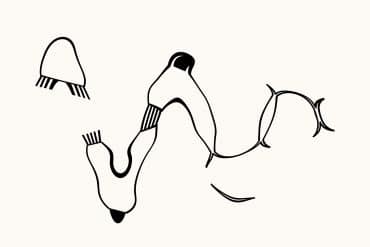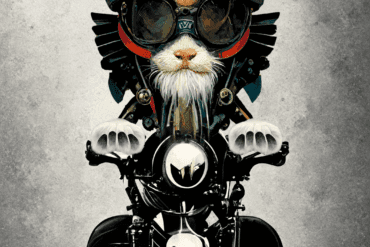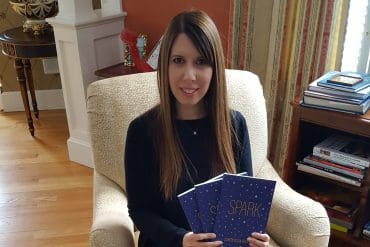When I was first accepted into the PhD by research program in the UK, I had mixed feelings, mainly because I was about to pursue a career that I didn’t have the heart for, and partially because I would need to explore yet another new culture, country, and environment.
I never ever wanted to become a PhD holder because I always said, “I prefer practice over academia.” I kept refusing all of the sponsorship opportunities until I slowly began to realise, or I convinced myself to believe, that these opportunities must have had some importance. Well, this was probably because I had been a part-time lecturer for a while, or at least this was how I persuaded myself. When I was first accepted into the PhD by research program in the UK, I had mixed feelings, mainly because I was about to pursue a career that I didn’t have the heart for, and partially because I would need to explore yet another new culture, country, and environment. To most people, this would have been an adventure, but after living in 4 different countries by age 25 I felt that exploring a totally new one at 26 wasn’t the ideal situation either.
I met my director of studies during my very first week. I still remember two sentences from the whole conversation: “Don’t be my first failure,” and “Your PhD thesis is like a cappuccino; you need to find what is in the bottom of the mug for the proper coffee.” I believe I left that meeting almost annoyed from the first sentence because I refuse to fail or to be considered a failure; however, that sentence ended up being the primary motivator to move forward. I had realized that this was the first official stretch within my own identity and borders of comfort.
I started my journey feeling lost but continually saying “What if?” to myself and to my supervisors. I remember the number of articles that I had needed to read just to figure out what I was doing to begin with, and how to do it in the correct manner. Little did I know back then that it’s not a PhD if you don’t get lost. Little did I know about academia, little did I want to know…it was more of “I needed to know.”
I remember the long working days, even weekends, especially throughout the first year. I also remember the words of discouragement that I kept on hearing from almost all of the PhD candidates who had started their journey before mine. Though they spread their negative energy, making the completion of my PhD within three years seem an impossible mission, I established even more motivation to tackle this boundary and expand my horizon.
The first year is often described as the most intensive in every sense. I believe it was the worst year out of the three because of the new experiences that kept me wondering every day whether I was on the right track or heading down the drain. After only six months of my journey, I felt capable of blending in with my new identity and participated in a conference at the university, one of the very first positive events that gave me a push. I won the best presentation and best paper in the track, and I received positive feedback from many people regarding my work.
Even though I felt that I was on top of my game, I almost fell apart throughout the process. It might have been because I was developing an identity that didn’t really define me. I lost confidence with my work several times, not because of the work itself, but because the unclear and undefined outcome.
A week before the big day, the panic attacks were severe. I decided to visit the one place that takes my mind off of everything: I went to the gym. The night before the defense I couldn’t really sleep as I was too aware of the countdown to the 9am meeting.
Fear kept on escalating throughout the second year, especially when it came to the methodology chapter and the actual data generation. The methodology chapter, however, turned out to be one of the most nourishing chapters to write. It was a personalised methodology that made data generation so exciting and more of a delightful experience rather than a research requirement. At that point, I felt that my inner borderlines had expanded, and it didn’t feel dreadful to be part of the academic world anymore. After the data generation came the analysis process, which was a pain to do manually yet ended up being so fruitful in the very end. It was throughout the analysis process that I felt I was getting somewhere, or even that my project was making some sense.
One of the scariest moments that I experienced was signing the enrollment papers for the third year knowing deep inside that it had to be the last year. Although I felt that I was hitting a brick wall right before submission, the third year was my favourite year. Hitting a brick wall was just because I knew that I had no way out of the borders that I had created and that was Academia. Yet, the other side of me just wanted to finish, but I wanted to submit a perfect thesis. I knew deep inside that a perfect thesis does not exist, but I wanted to submit something that looked perfect to me.
I realised that it was all coming to an end the day my defense date was decided. The panic attacks arrived in intervals; there were nights I could not sleep and days I felt numb. I kept on repeating the whole process of preparation over and over again. A week before the big day, the panic attacks were severe. I decided to visit the one place that takes my mind off of everything: I went to the gym. The night before the defense I couldn’t really sleep as I was too aware of the countdown to the 9am meeting.
I can only say that the experience was one of the best in my life. I felt in control as I defended and explained my work. Even though it wasn’t what I truly felt passionate about, it meant a lot to me knowing that I could achieve what my mind decides to pursue. I finally did let go of my thesis. It was a weird feeling of relief and I honestly did not know what to do with my 24-hours right after submission. It took me some time to cope with the thesis being out of my control and away from any amendments.
When they announced the results, I froze and couldn’t say a word, not even thank you. I froze until my supervisors were right by my side to congratulate me, and right when I saw their tears it hit me that it was over. However, it truly hit me that I was finished when I received the email from the research office informing me that the degree had been officially awarded. It was then that I felt a sense of alienation, probably because I would be facing difficulties to relate to the new world of academia that, in my society, is considered a prestigious field that is unique in nature. Yes, it was worthwhile to become that Dr., but it is a stretch of my own identity…a stretch that I would need to accept and find a way to excel with. After all, “You never change your life until you step out of your comfort zone; change begins at the end of your comfort zone” (Bennett).
AUTHOR’S MEMO
The power of narrative inquiry relies in the use of storytelling to generate data (Huber et al., 2013). In narrative inquiry, stories are construed as memories of an individual’s life experience that are co-constructed to generate a comprehensible narrative that contains a beginning, middle, and ending (Barkhuizen and Wette, 2008). Therefore, the use of episodic narrative has guided this piece to pinpoint the ‘borderlands’ that have been explored during different stages of my life resulting in impacting my ‘true’ identity. The use of episodic narrative intersects with psychological state as we attach memories to a specific time, space, circumstances or situation (Flick, 1997). The above narrates the story from within one’s self, one’s borderland.
Barkhuizen, G., Wette, R. (2008). Narrative frames for investigating the experiences of language teachers. System, 36, 372–387.
Bennett, R. T. (2016). The light in the heart. Roy T. Bennett Publisher.
Flick, U . (1997). The episodic interview: Small scale narratives as approach to relevant experiences (Discussion paper). London, England: LSE Methodology Institute. Retrieved from http://www.lse.ac.uk/methodology/pdf/qualpapers/flick-episodic.pdf
Huber, J., Caine, V., Huber, M., Steeves, P. (2013). Narrative inquiry as pedagogy in education: The extraordinary potential of living, telling, retelling, and reliving stories of experience. Review of Research in Education, 37, 212–242.
Photo by Jane Carmona on Unsplash









